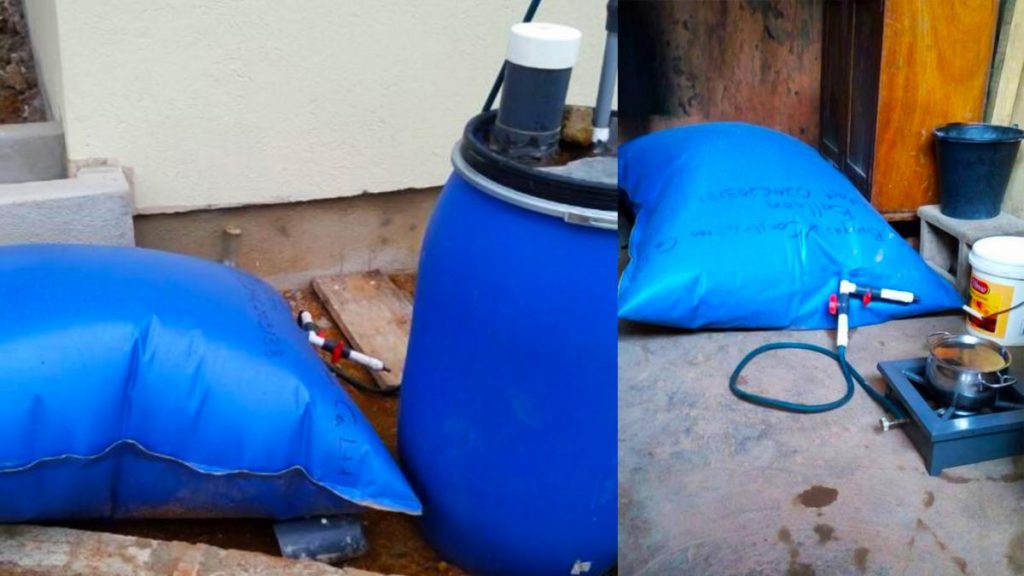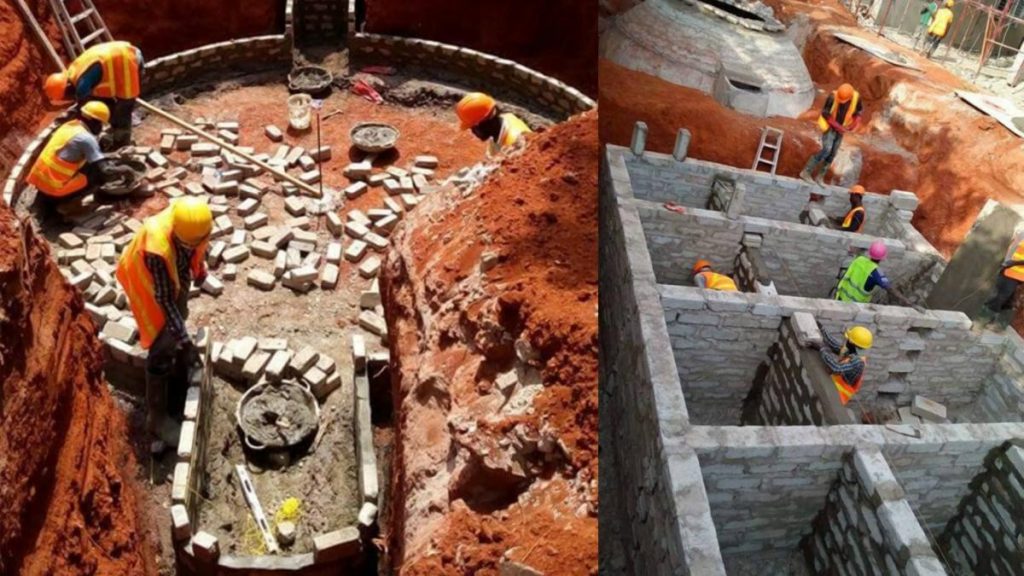Enoch Kofi Boadu leads a young, spirited, and creative team of entrepreneurs, with an ambitious goal to become “the leading and most innovative comprehensive waste management company in Ghana.” Their company, DAS Biogas, has developed a waste-to-wealth solution for treating biodegradable household waste and converting it into cooking gas.
In a nation where waste of every kind is often disposed of improperly, DAS Biogas is designing an innovative mechanism to responsibly dispose of all household organic waste, from the kitchen to the restroom – and generate cooking gas in the process. The system also generates liquid fertilizer residue that can also be used on garden areas or even farmland. Household waste would ordinarily end up in landfills and sewage sites, emitting greenhouse gases and posing a significant health risk.
Boadu, the company’s founder of, is a mechanical engineer with a tremendous passion for contributing to sustainable development through innovations in waste management in Ghana. His journey to the Ghana Climate Innovation Centre (GCIC) was 10 years in the making, and he continues to work on improving his system’s design.
In 2007, Boadu was working as a teacher when he first began researching and experimenting with biogas systems. At the time, it was nothing more than a learning project for his students. It wasn’t until 2012 that he started to think about turning the biogas system into a business. He continued to work on the system’s design, registered the business in 2015, and finally joined the GCIC in 2017.
Boadu’s venture is one of 11 companies in the first cohort of entrepreneurs admitted into the GCIC in May 2017. Boadu and his team have been experimenting with different versions of the portable biogas plant. With technological and product development support from the GCIC, they look forward to improving the design for a seamless integration into Ghanaian homes
The portable biogas plant encourages waste segregation and potentially reduces the financial and social costs of waste disposal. The biogas produced can replace liquefied petroleum gas and wood for cooking, reducing deforestation.
To help grow his business, the GCIC provided Boadu with training in marketing strategies, leadership skills, business model development, and customer segmentation. Before the GCIC, he says, “I didn’t know about key performance indicators or how to improve my HR policies. I can’t put a value on what the Ghana CIC has given me. It’s priceless!”
At the GCIC, Boadu also gained valuable insights into product development, as well as market access interventions to sustainably scale his business. Once the team has perfected the portable biogas plant, they hope to make it a visible feature of every home in Ghana. But it doesn’t stop there. DAS Biogas also wants to expand beyond the household and provide plants for entire communities.

